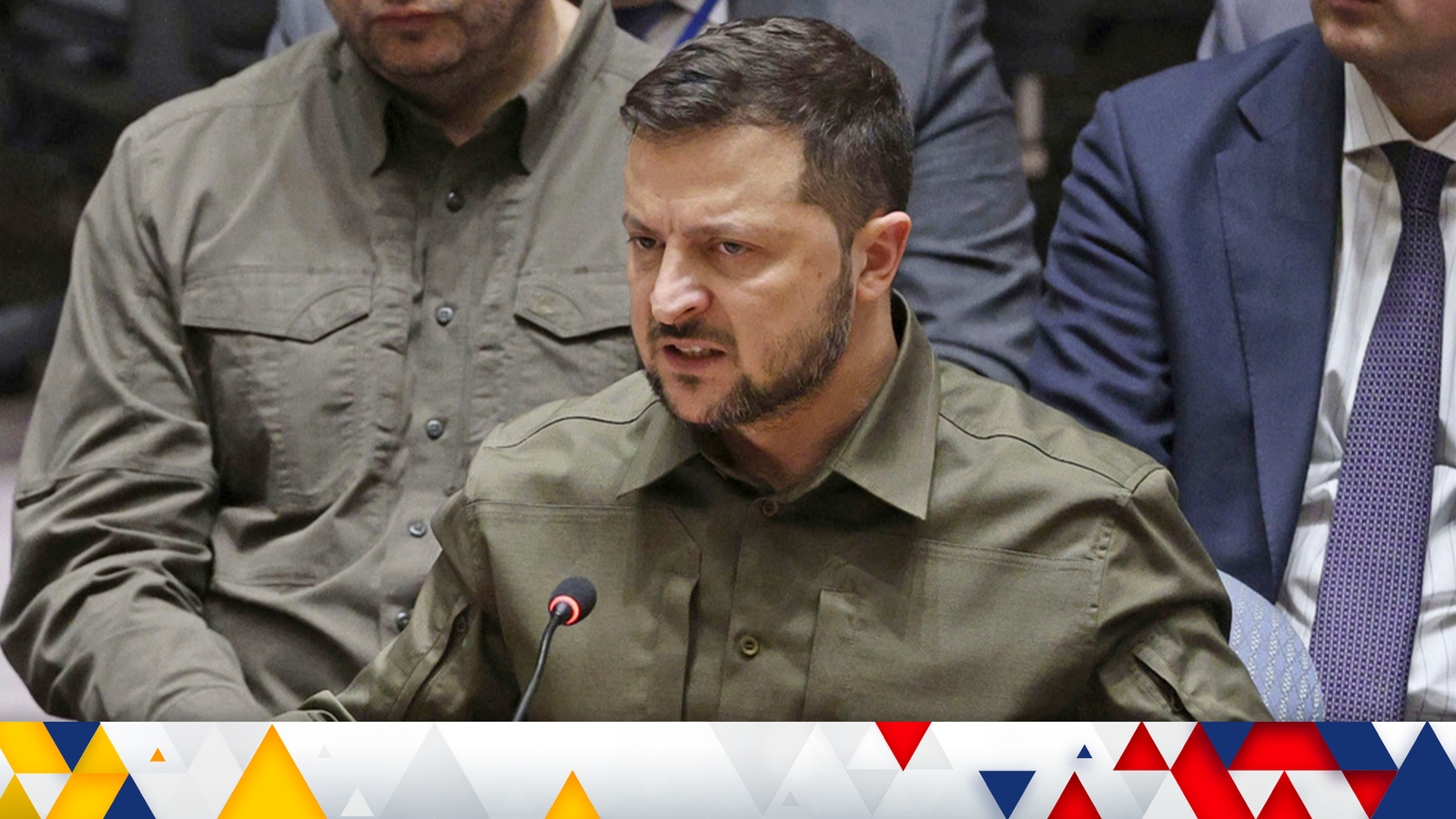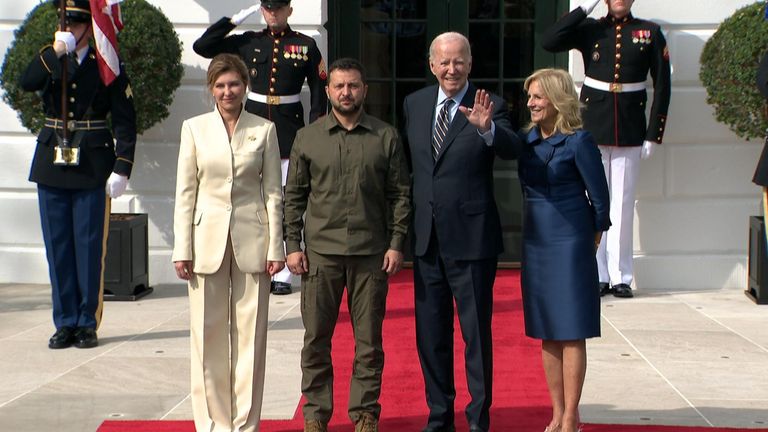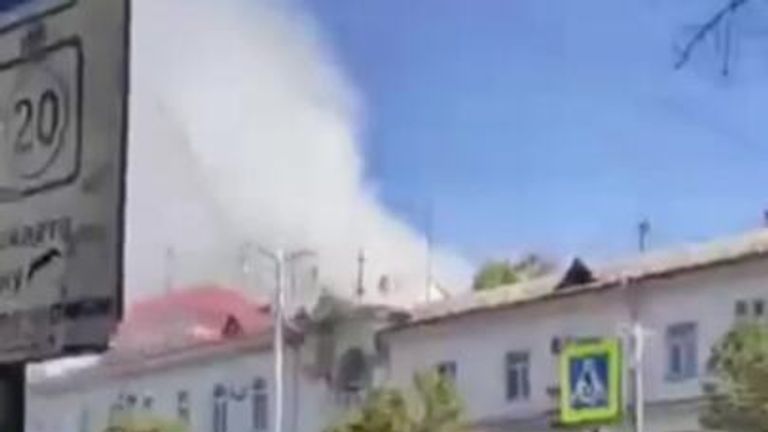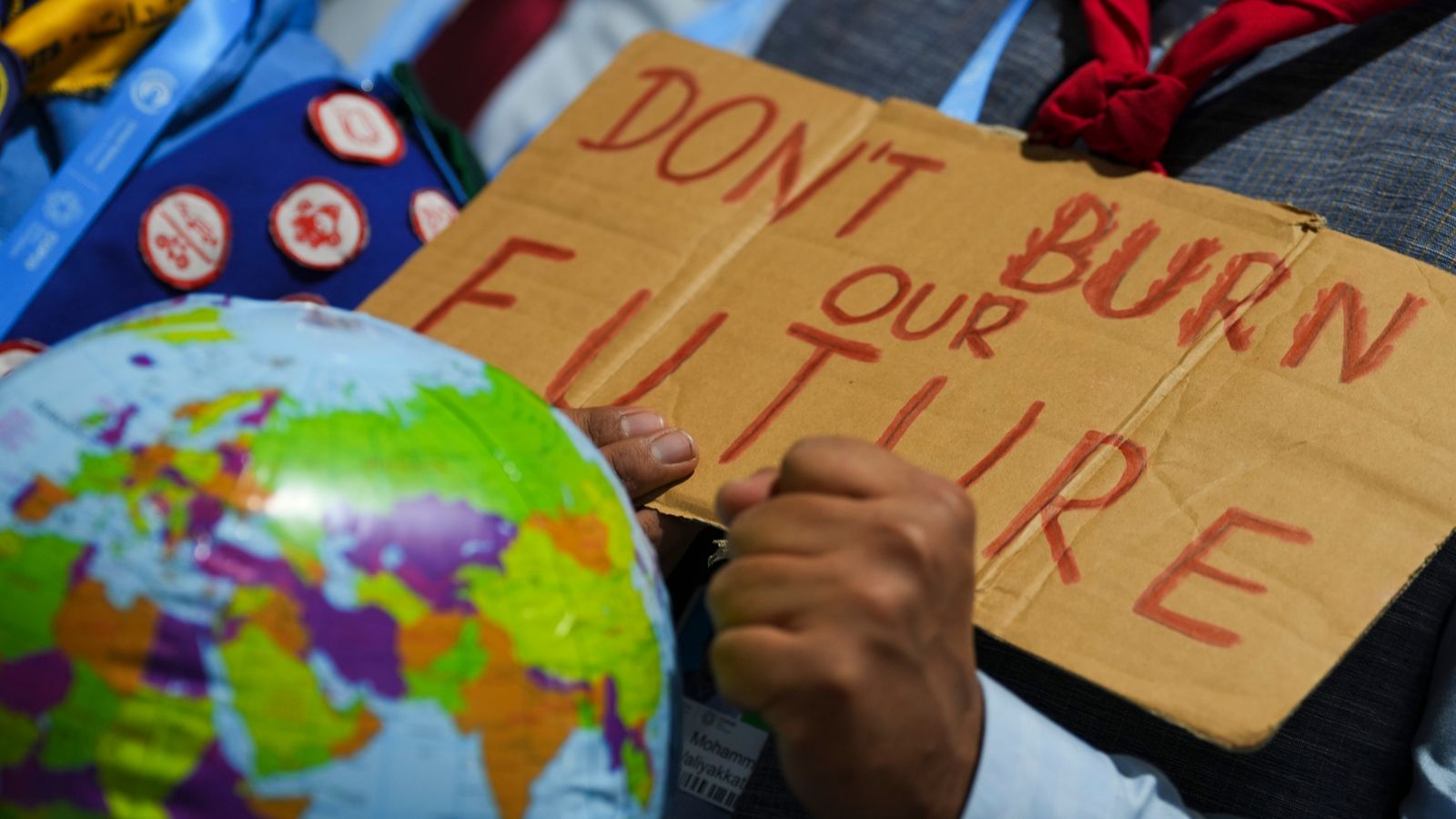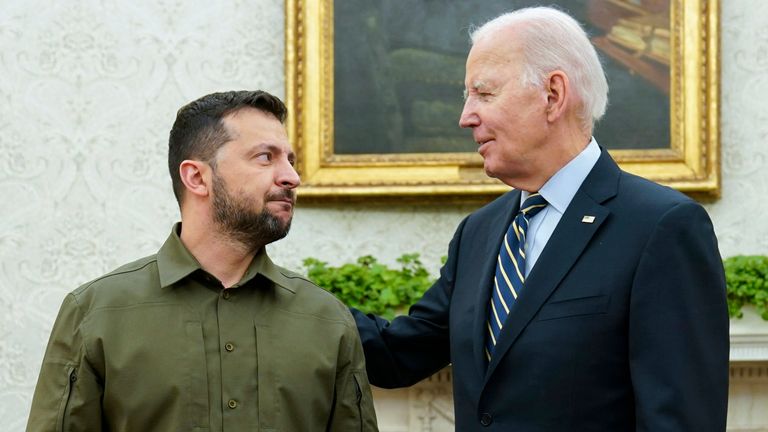
It’s been a trying week for Volodymyr Zelenskyy.
At the United Nations meeting in New York, he appeared a weary, frustrated and at times angry leader.
In his first appearance at the UN in person since the start of the war, the Ukrainian president might have hoped that its funding principles would lead to a groundswell of condemnation of Russia’s illegal invasion.
Ukraine war latest: One missing after strike on Russia’s Black Sea fleet HQ
Instead, not only did a number of nations evidently place self-interest over collective peace and security – many have established closer economic ties with Russia over the past year – but Iran took the opportunity to criticise the US for intervening and prolonging the conflict.
The UN Security Council – with five permanent members – was designed to be the teeth of the UN, able to issue binding resolutions upon member states, but that also proved impotent.
On a more positive note, in Washington Mr Zelenskyy was able to secure a new aid package specifically focused on the next phase of the war, but the backdrop was a lukewarm reception from Congress – reflecting declining US public support for the war.
And frictions over grain tariffs between Ukraine and Poland, Slovakia and Hungary have also served to heighten tensions and test Western unity.
After more than 18 months of war, the pressures continue to mount for Mr Zelenskyy.
Sleep deprivation coupled with the stresses and strains of war are etched into deep furrows on his face. He has proven an exceptionally gifted wartime leader, but cracks are starting to show.
He has no military experience, yet is having to bear responsibility for sending his military forces into a highly attritional battle, with mounting casualties.
Read more:
Why Poland’s unwavering support has reached breaking point
‘I lost my arm and ate dog food to survive’
Counteroffensive isn’t going as planned
The counteroffensive is not progressing as planned, and he has had to tolerate criticism of his military strategy, even from Western allies.
Mr Zelenskyy has been very effective at maintaining the profile of the war in international media, and securing a vital flow of western military and financial aid.
But western public support for the conflict is waning – Russia’s threat to wider Europe has diminished, and domestic priorities are starting to focus minds away from a “distant” war.
Mr Zelenskyy’s claim that he is fighting Russia to stop Europe descending into a third world war resonated at the start of the war, but the waning level of international support is clearly a major concern.
And he does not have a senior, experienced confidante with which to share his burden, in the way Winston Churchill used the monarchy during the Second World War.
Why does this matter?
To date, despite the mounting pressures and relentless tempo of the war, Mr Zelenskyy has successfully managed to maintain diplomatic pressure on stakeholders without causing friction.
However, as pressure and frustrations have grown, Mr Zelenskyy has – perhaps understandably – used increasingly undiplomatic language, which has exacerbated tensions.
His recent spat with Poland, Slovakia and Hungary over grain tariffs is a great example. Poland has done more than most to support Ukraine – after all, it has a vested interest in ensuring Ukraine does not fail.
Mr Zelenskyy’s very public criticism of Poland over grain tariffs clearly antagonised its prime minister, which would have been music to the ears of Vladimir Putin.
Despite the immense pressures, Mr Zelenskyy must maintain his composure – western unity in support of Ukraine is probably the single most important factor in this gruelling war of attrition with Russia.

